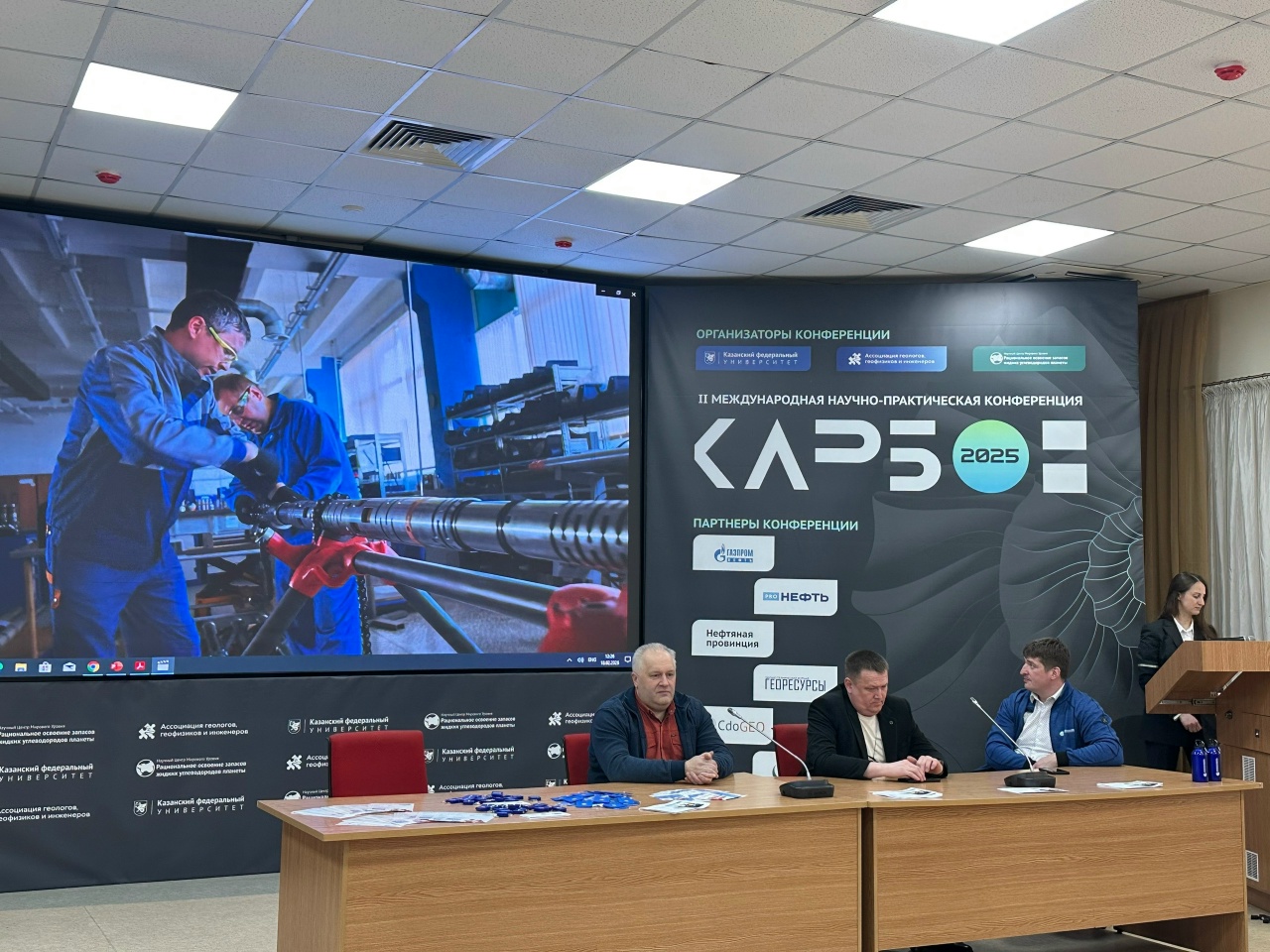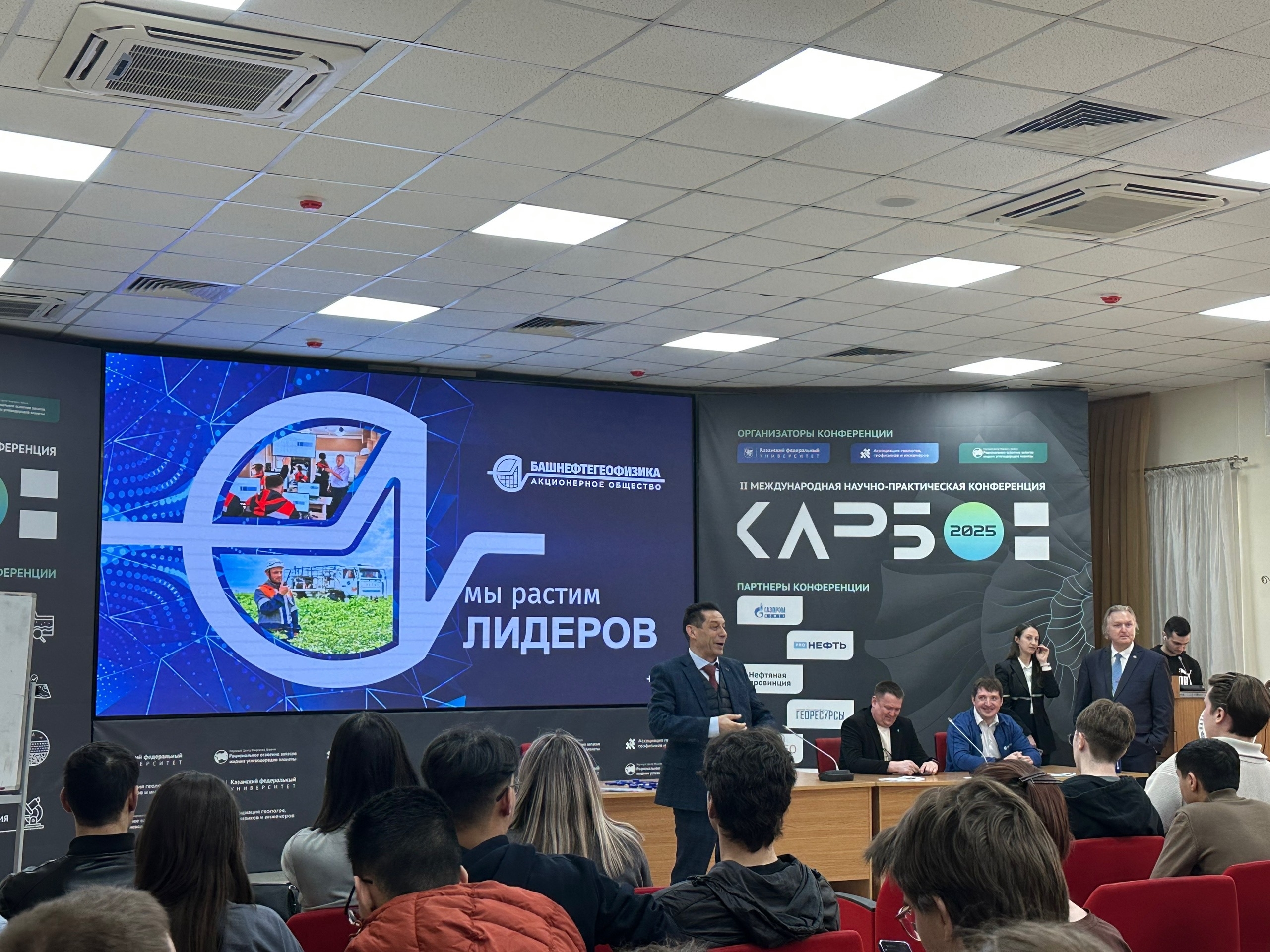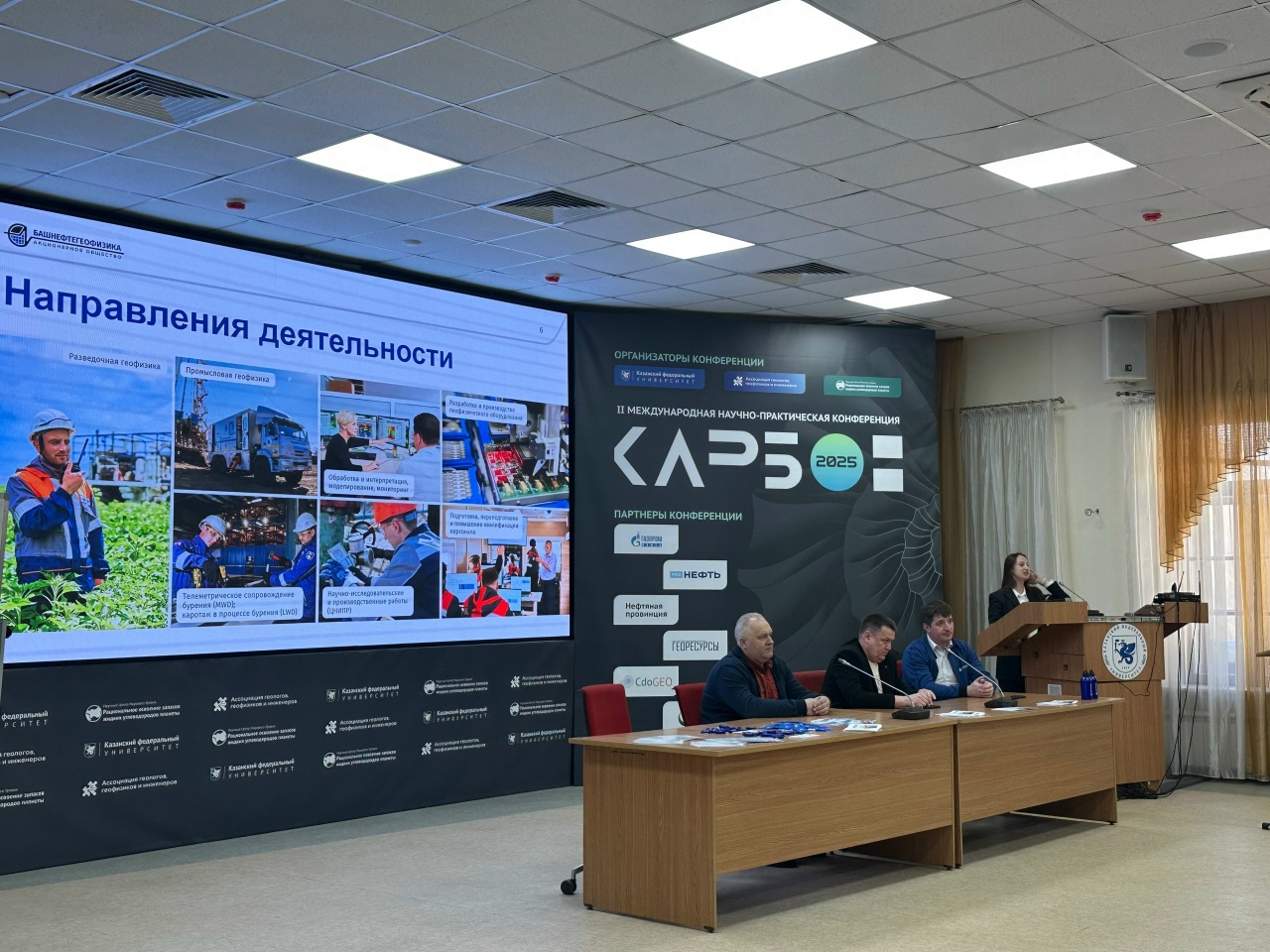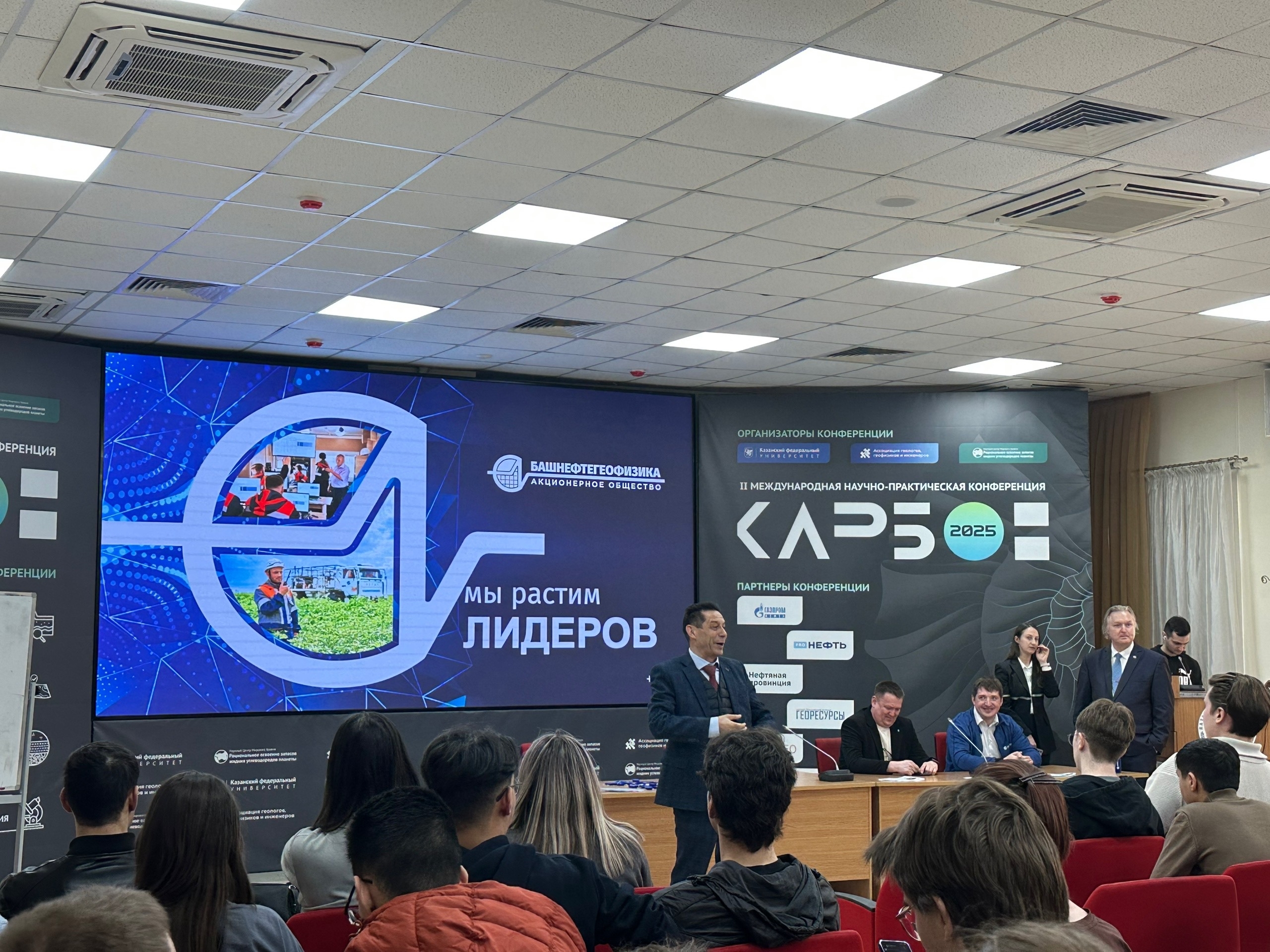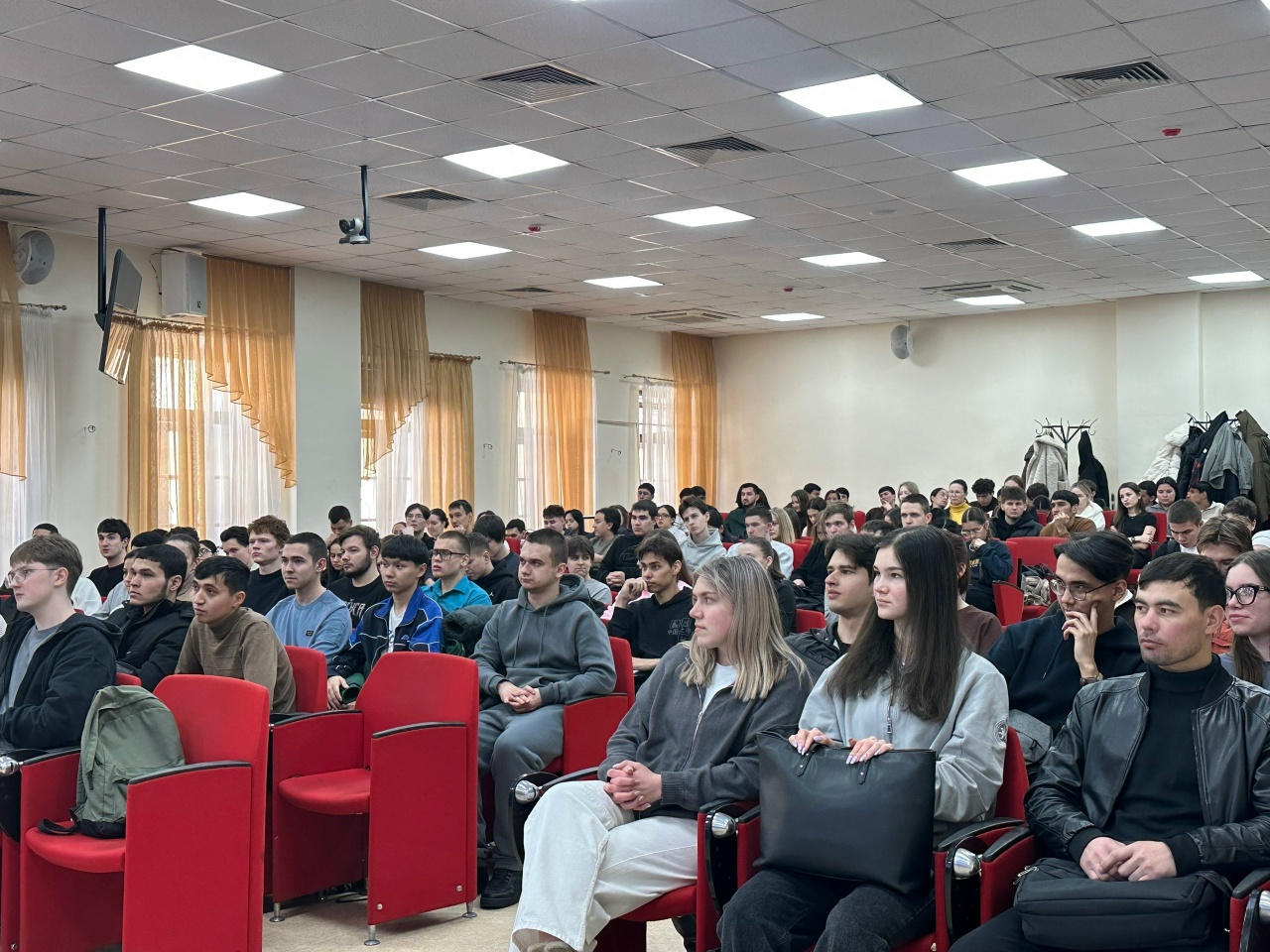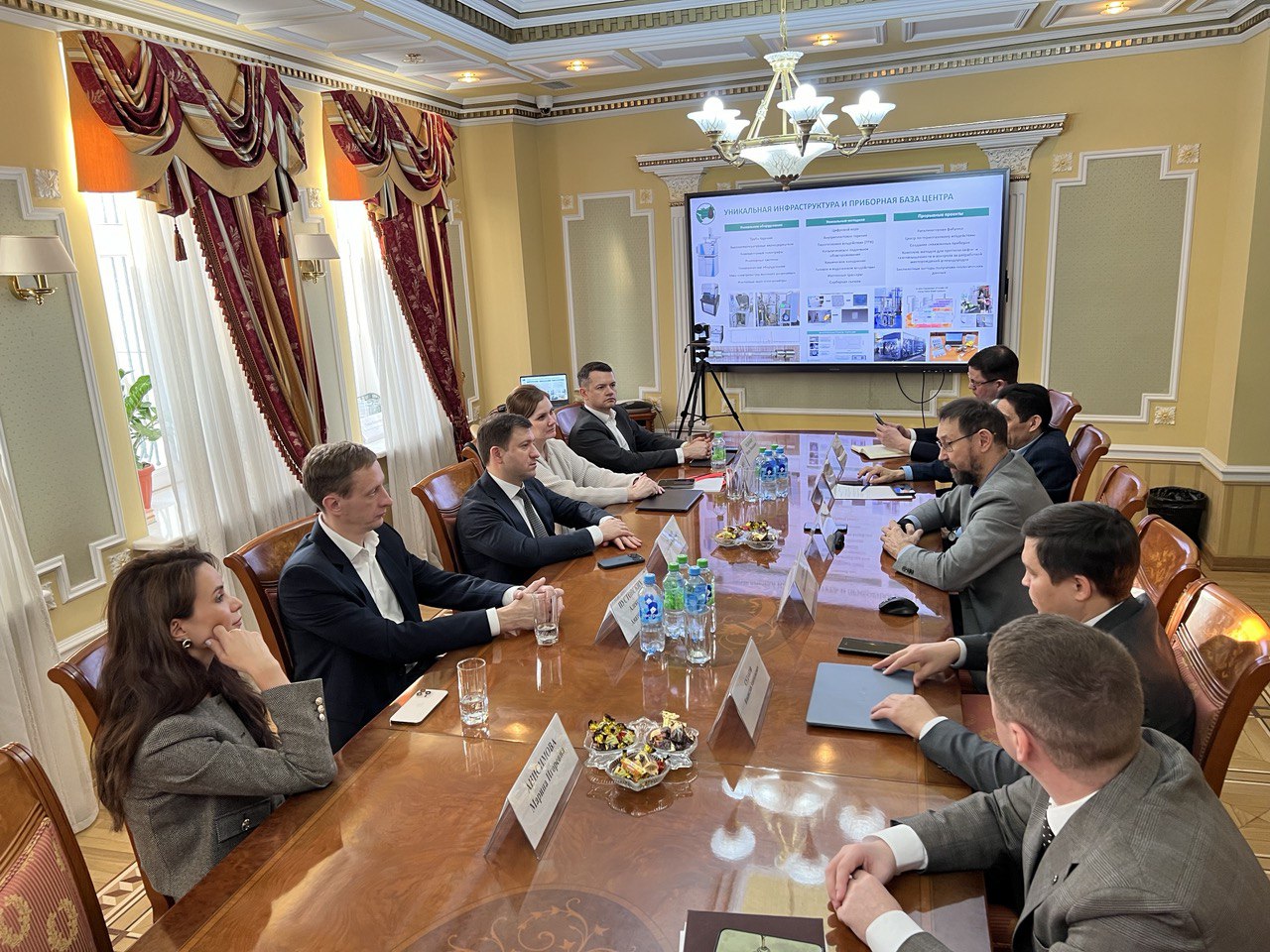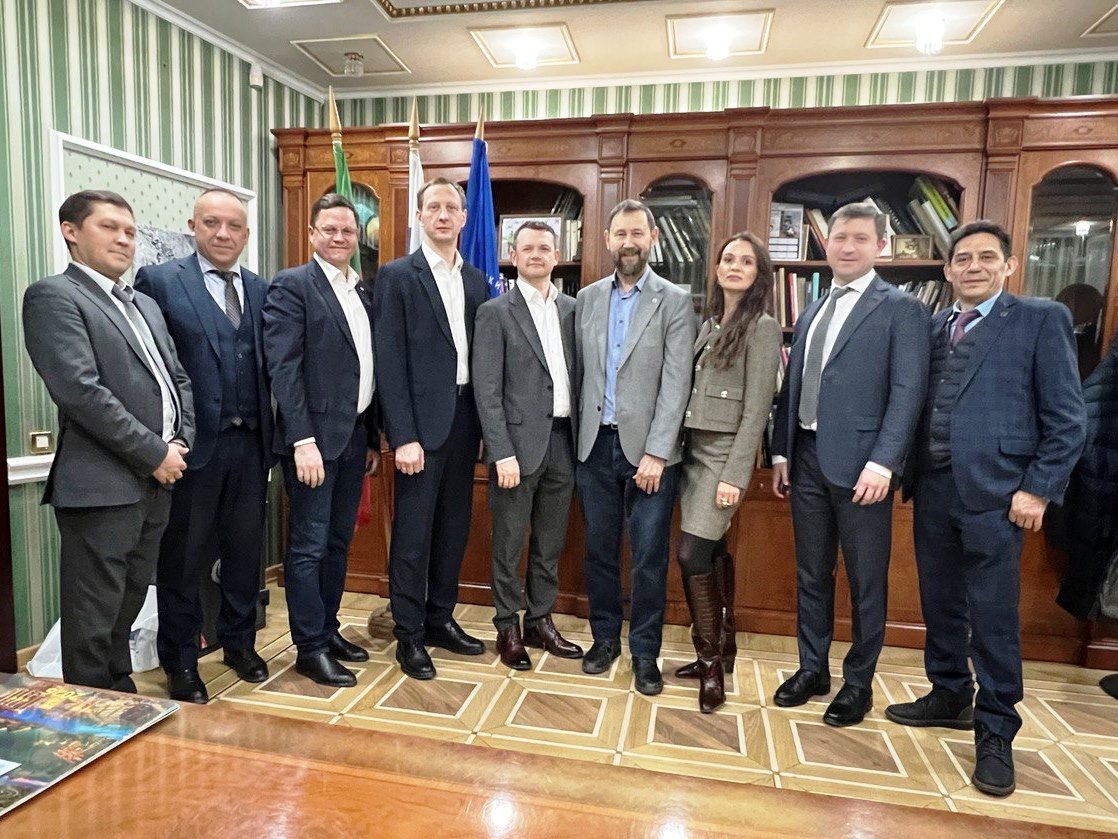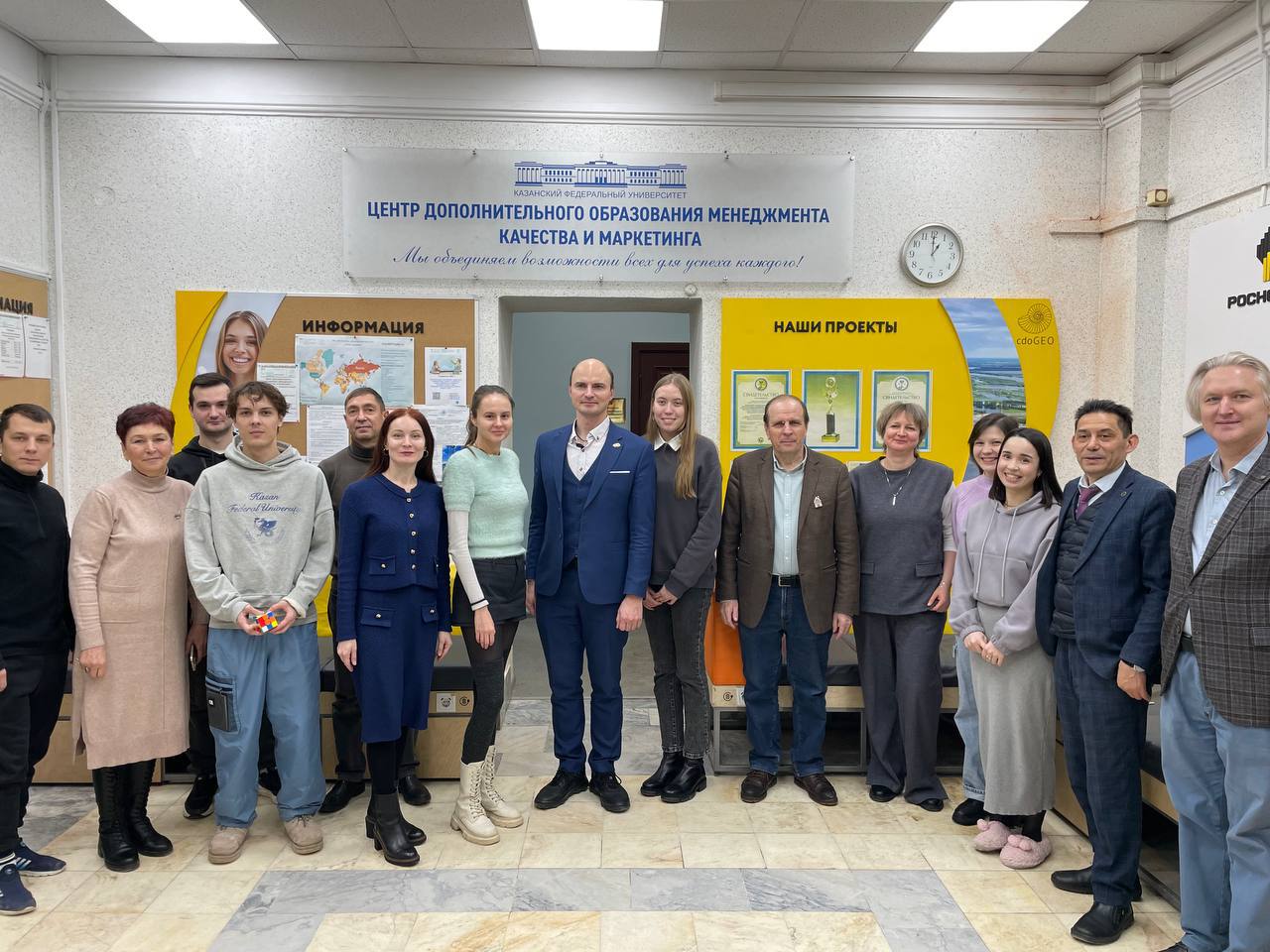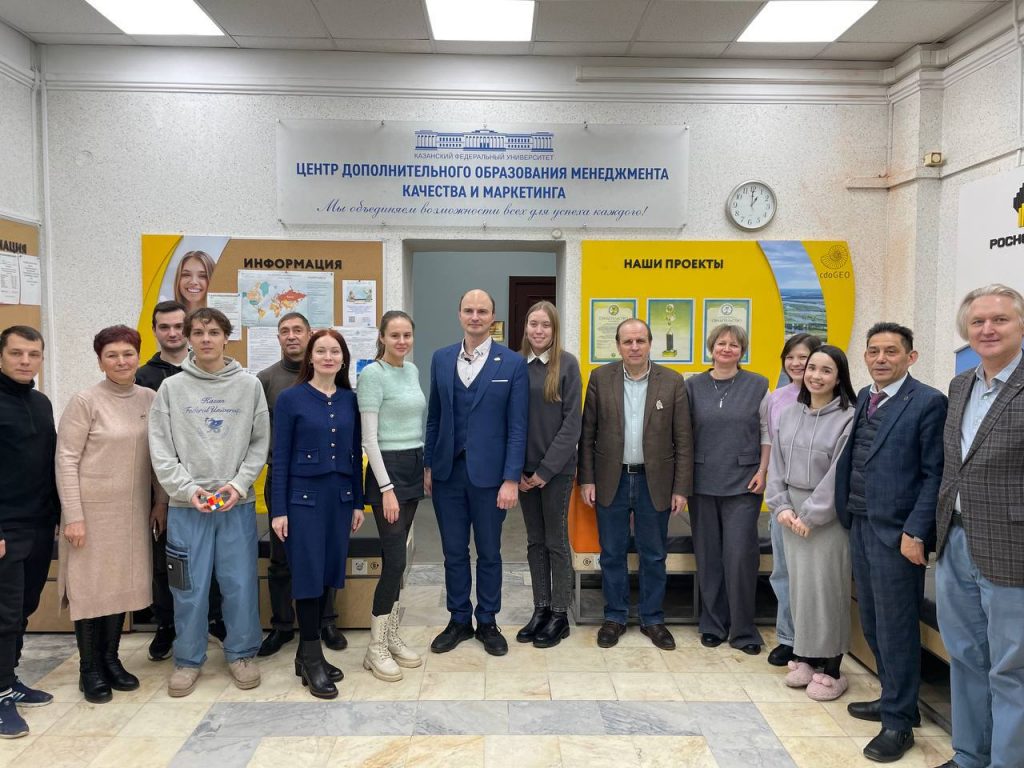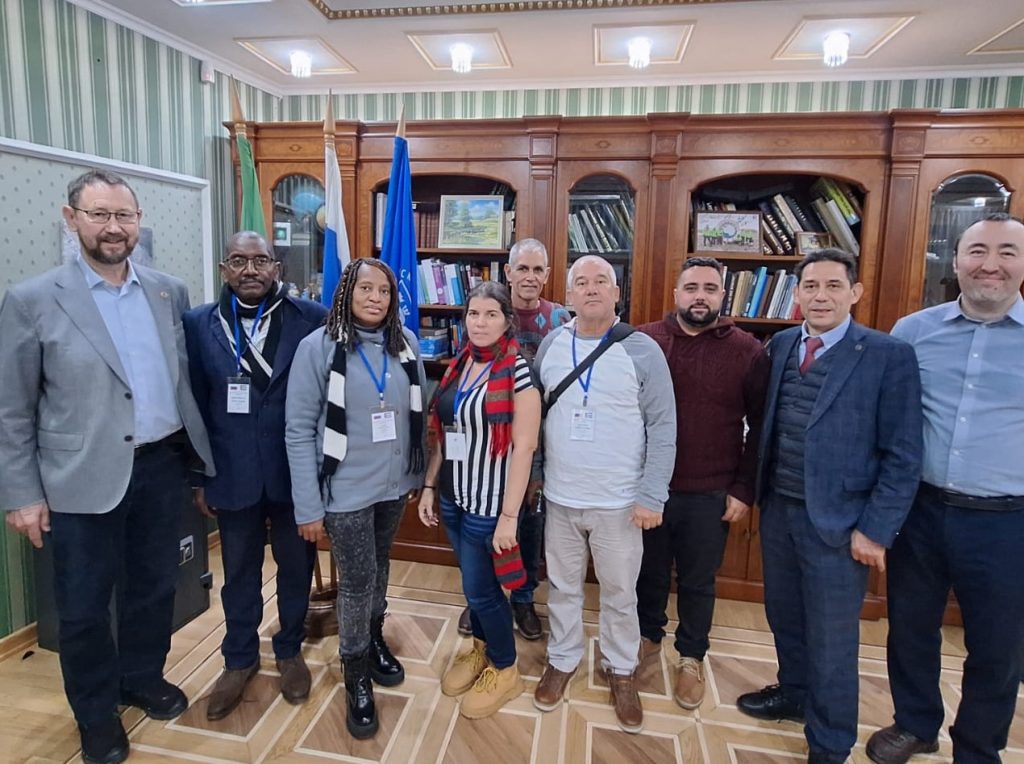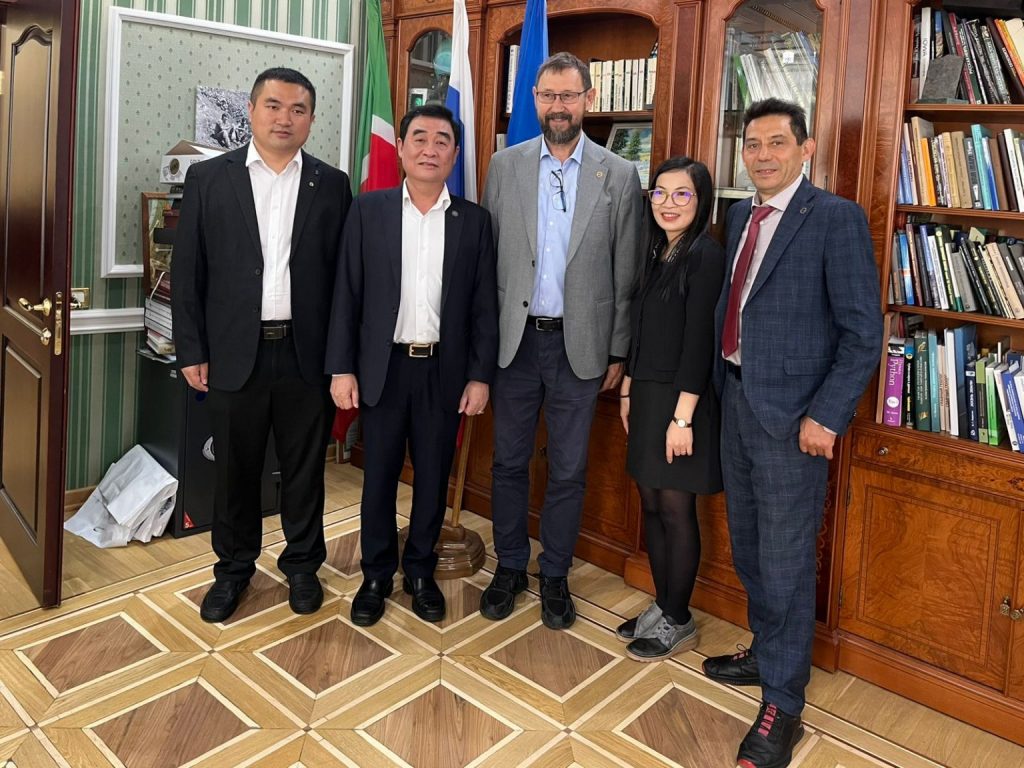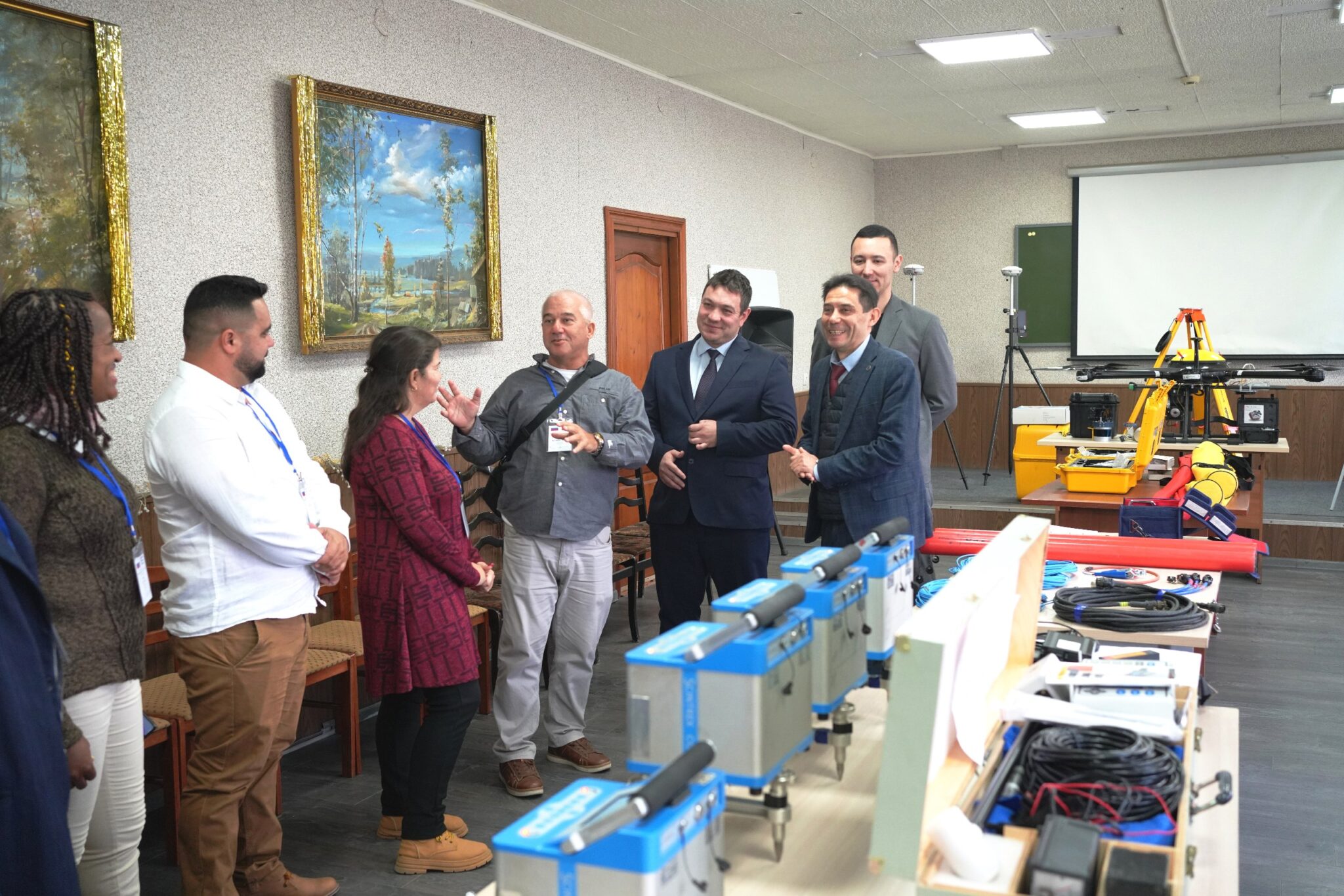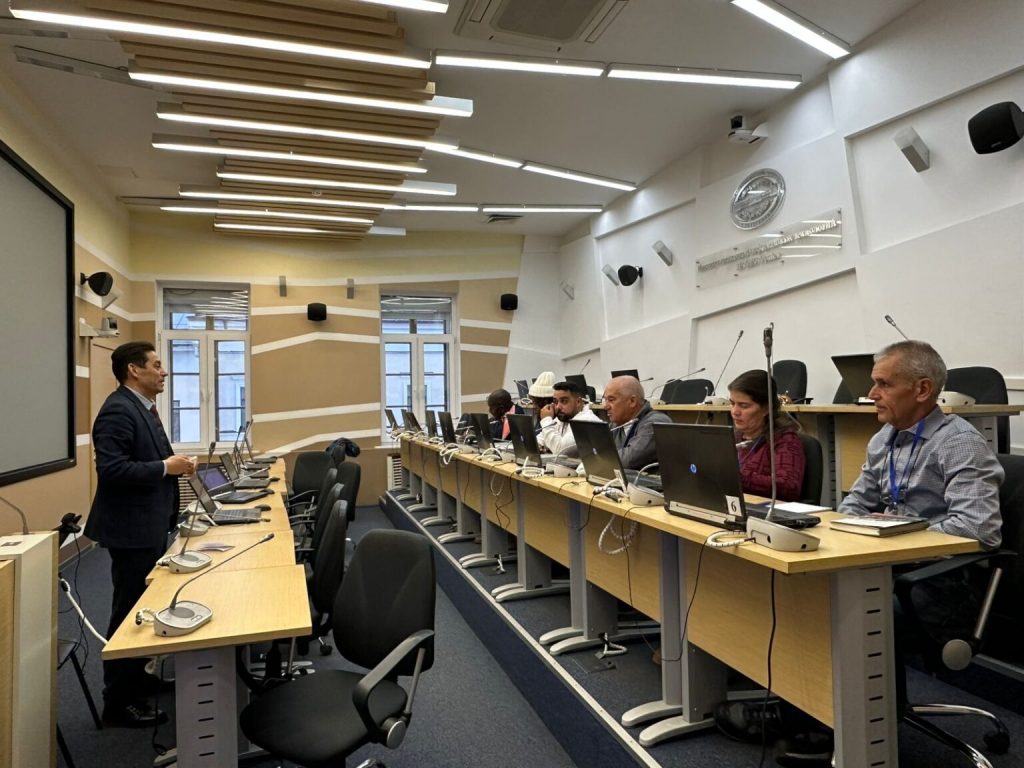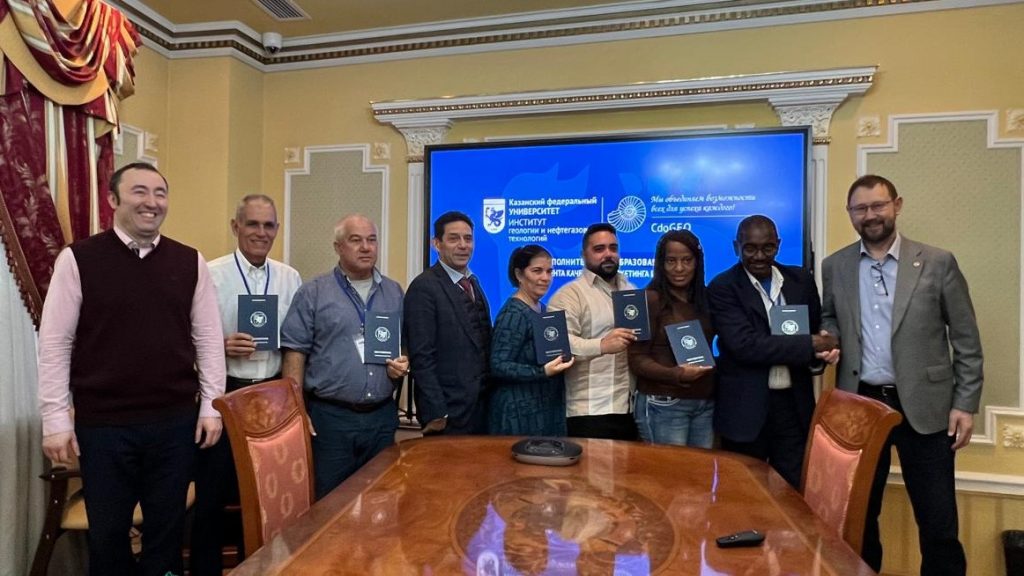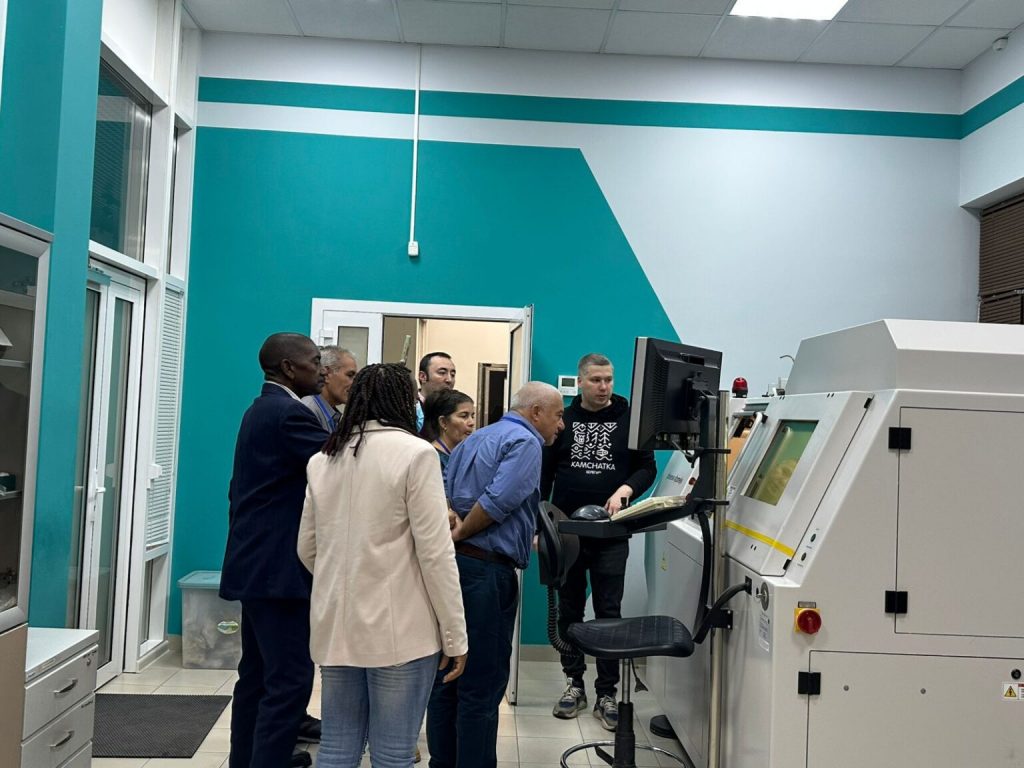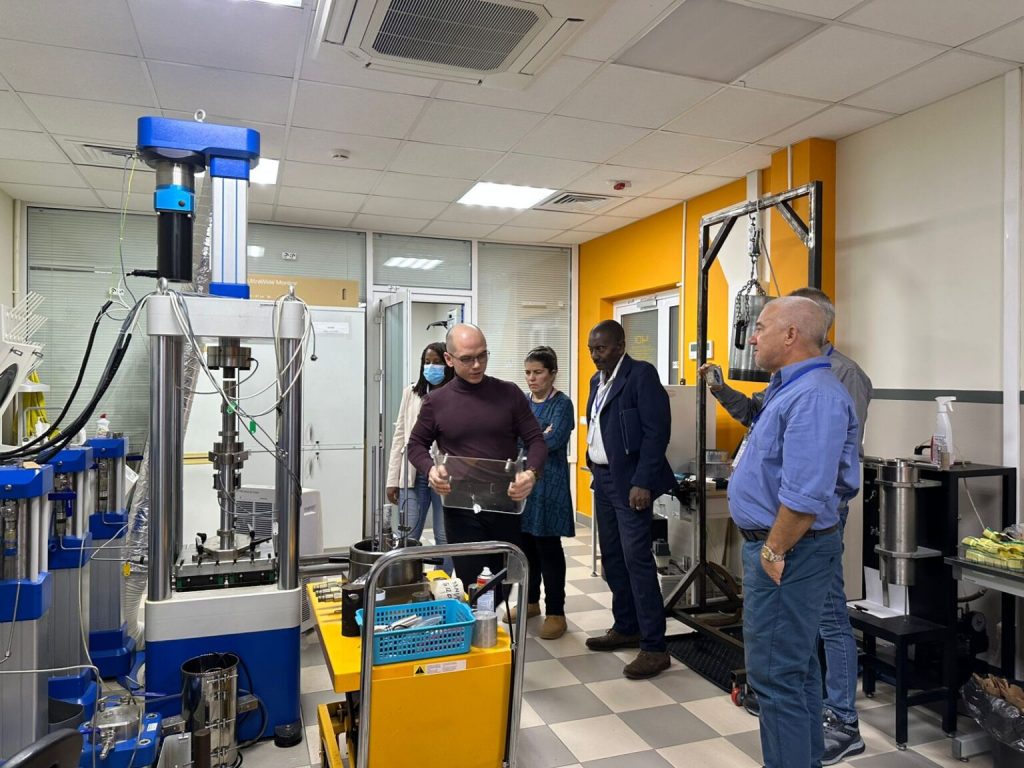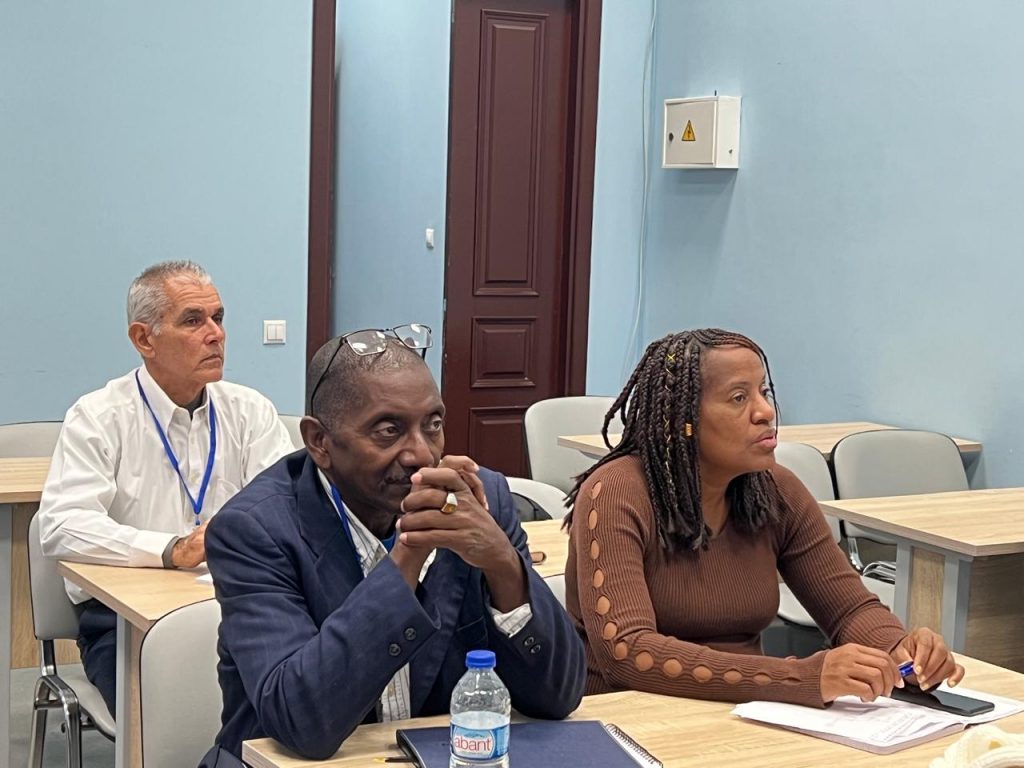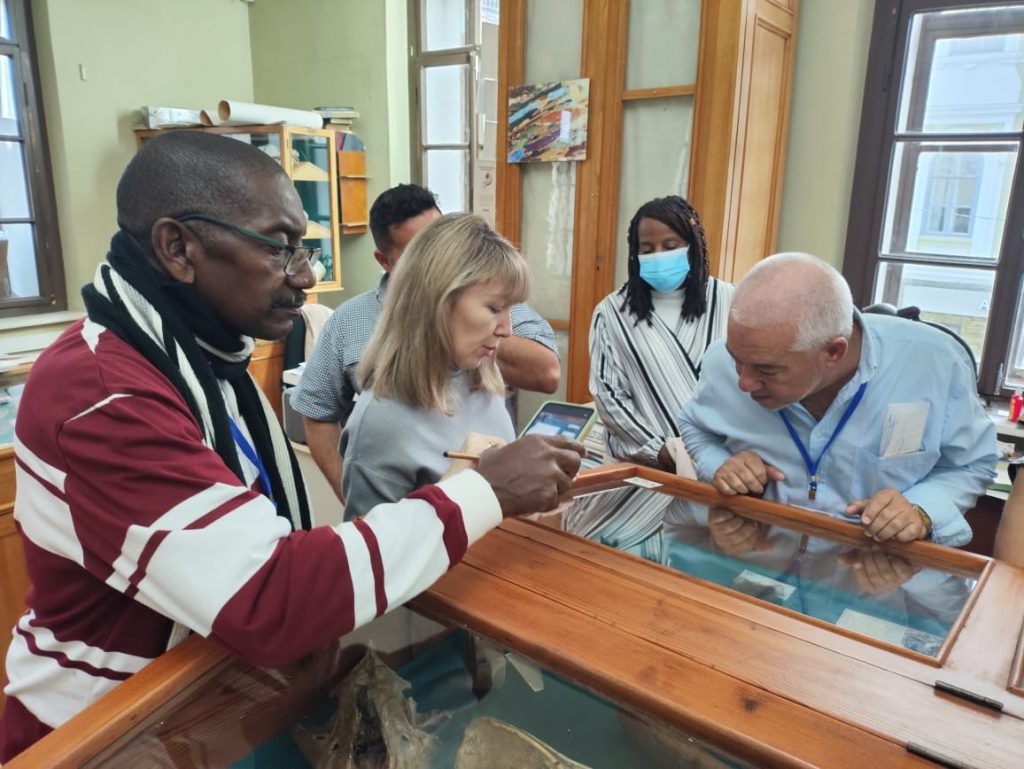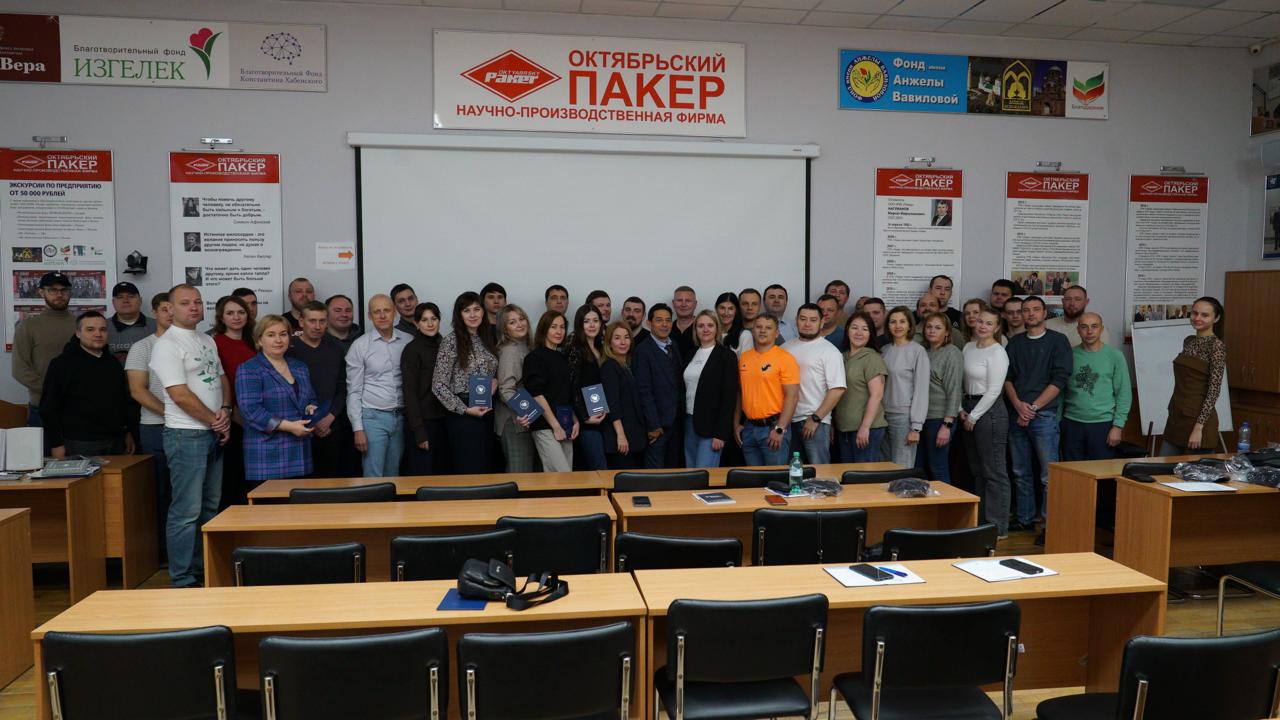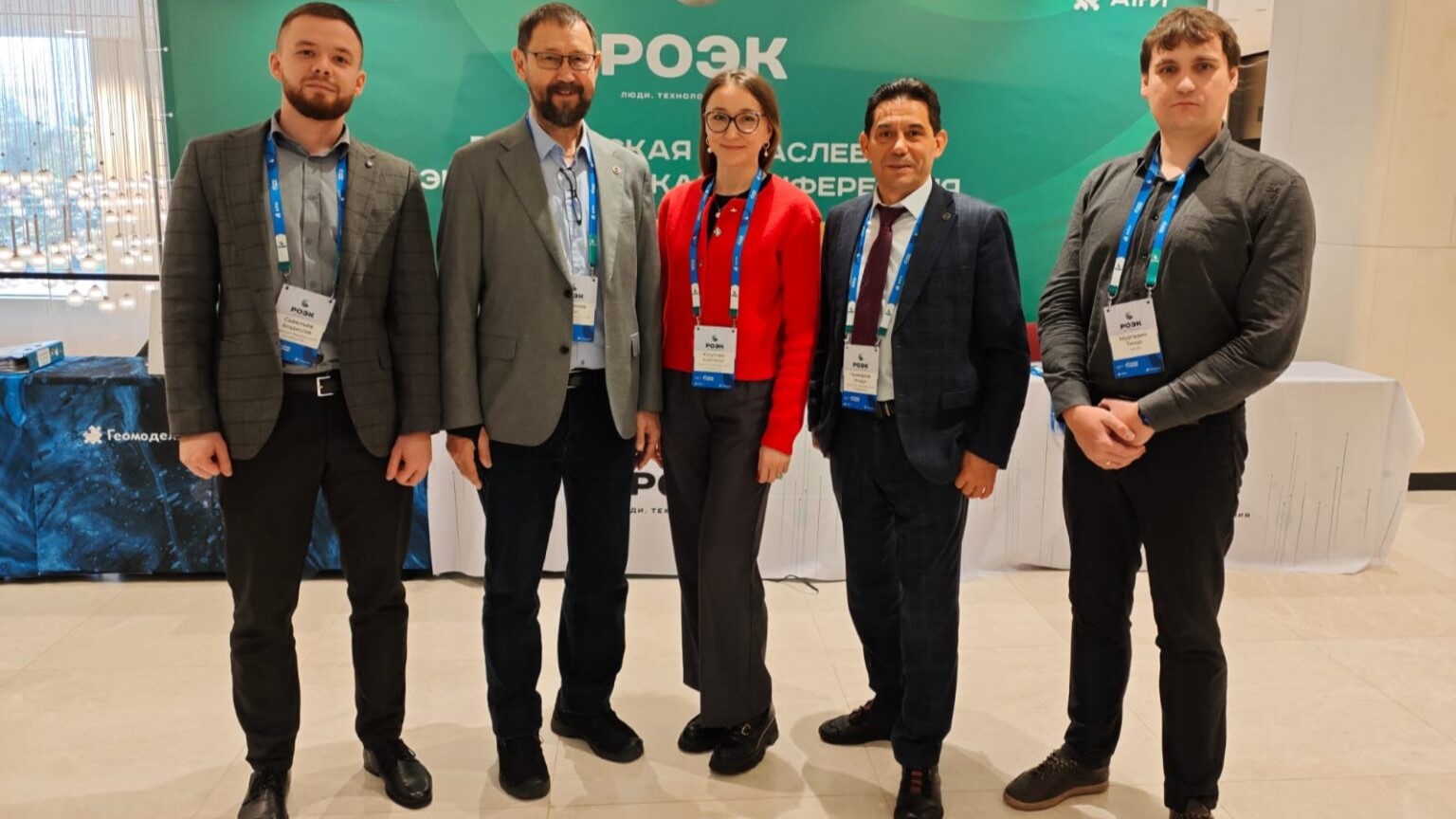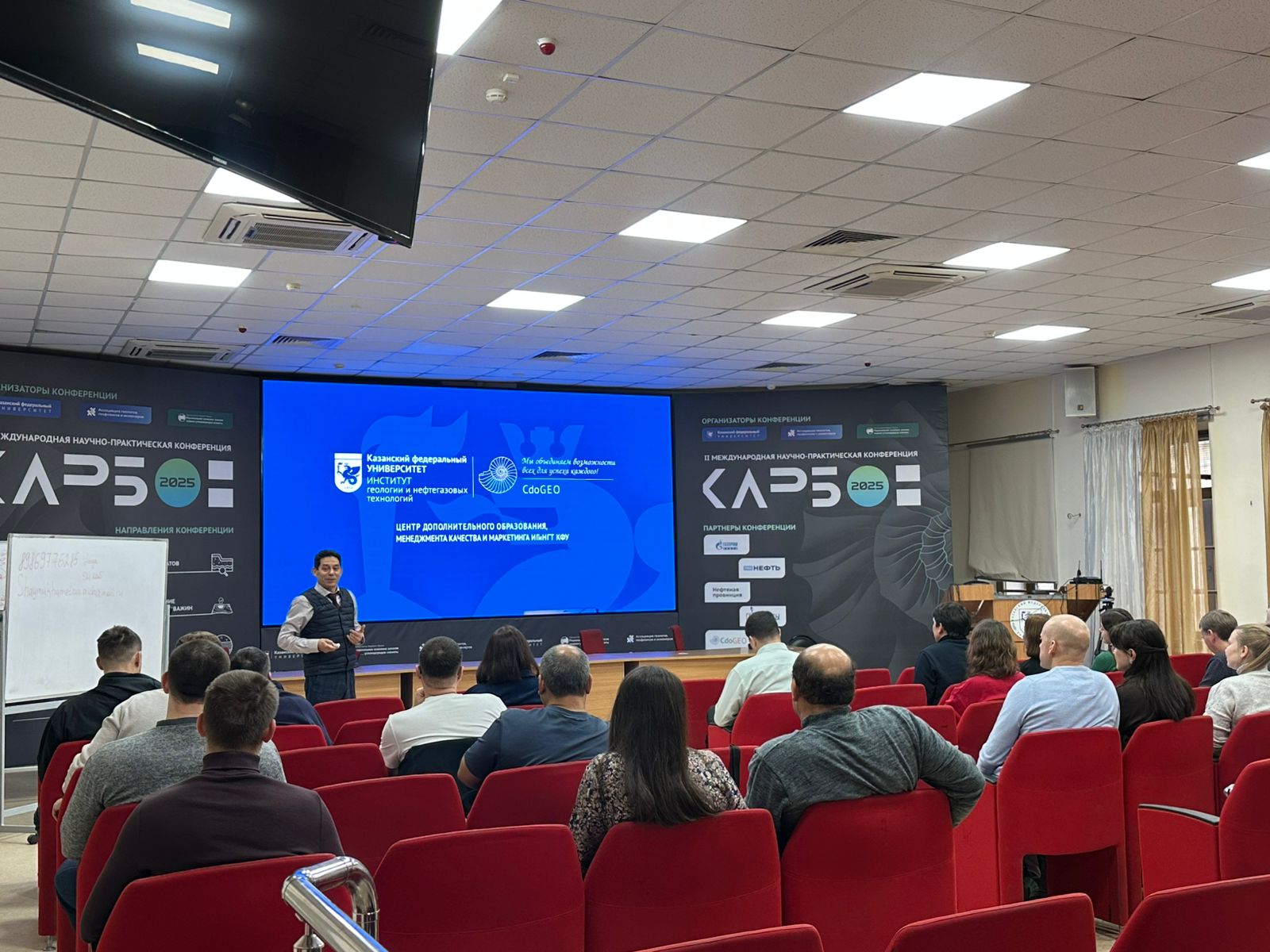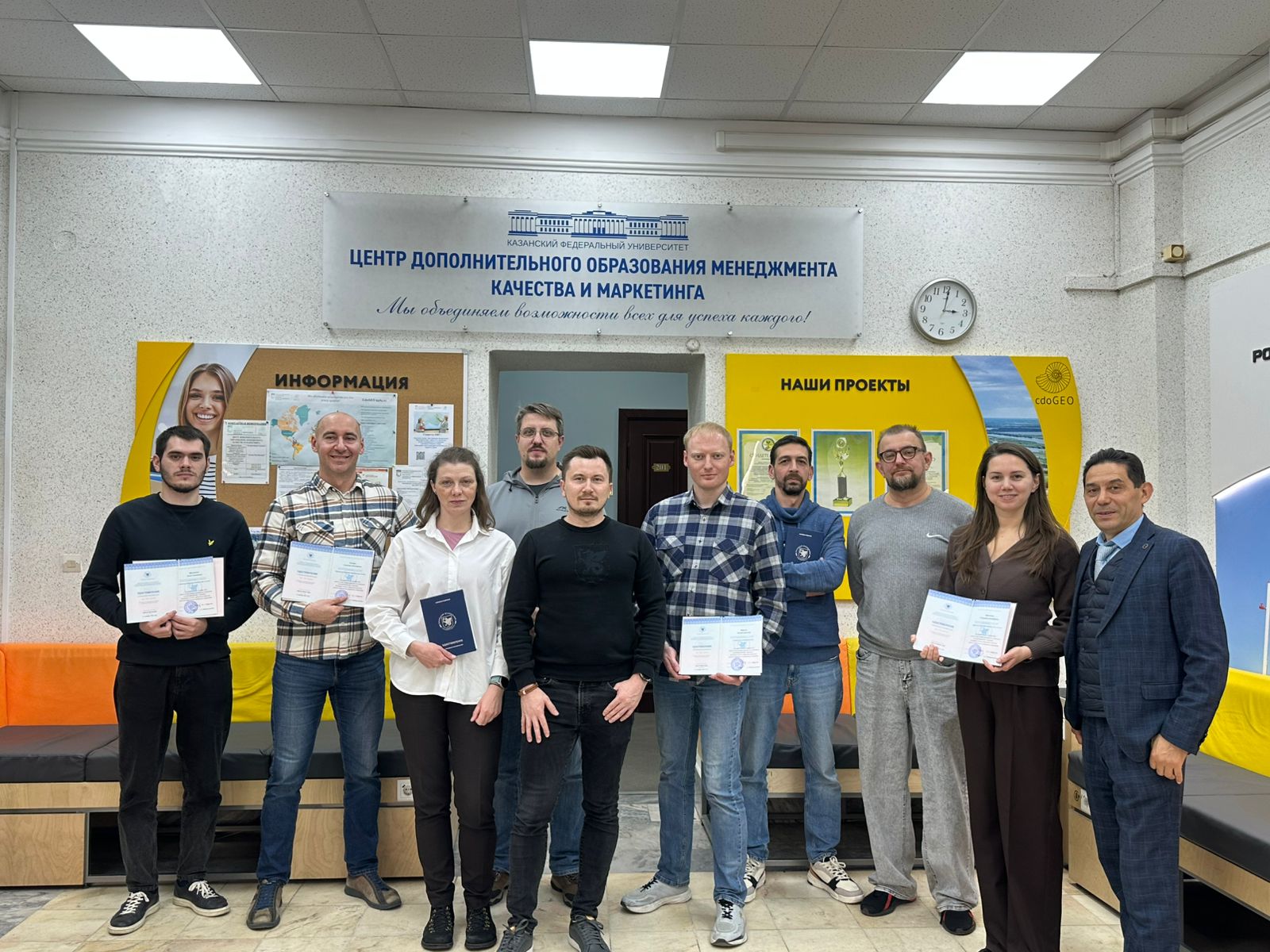Cooperation development discussed with Gazprom Neft
Перспективы развития сотрудничества с КФУ обсудили представители «Газпром нефти» во время посещения вуза
CdoGEO adapts to changing environment to complete 2025 with new successes
In 2025, CdoGEO (Center for Advanced Training) demonstrated its ability to respond quickly and effectively to changing external conditions. Work in the oil and gas sector—just as across the entire economy—required special flexibility from us, the adoption of modern approaches, and unwavering attention to the quality of our educational programs.
Under these conditions, CdoGEO confirmed its resilience. We strengthened our competencies and once again proved that we are a reliable partner for the oil and gas industry, capable of delivering results in any situation.
The results of 2025 speak for themselves. In 2025, 812 employees from oil and gas companies completed training—PJSC Rosneft (and subsidiaries), PJSC Gazprom (and subsidiaries), PJSC Surgutneftegaz, PJSC LUKOIL (and subsidiaries), PJSC Gazprom Neft, PJSC Tatneft, Tyumen Oil Research Center LLC, TNG-Group LLC, Bashneft-Dobycha LLC, Lukoil–West Siberia LLC, JSC Orenburgneft, RN Service, JSC Tyumenneftegaz, Gazpromneft-Terminal LLC, Sakhalin Energy LLC, ROSPAN INTERNATIONAL JSC, and RN BashNIPIneft.
Of these, 626 participants undertook advanced training, 91 completed professional retraining programs, 26 certificates were issued, and 96 Institute of Geology and Petroleum Technologies students obtained in-demand blue-collar qualifications: “Oil and Gas Production Operator, Grade 3 (for students)” and “Survey Technician for Topographic-Geodetic and Mine Surveying Works, Grade 3.”
CdoGEO developed 21 new programs in the most relevant areas:
-
Geological exploration: “Geology and Exploration of Mineral Deposits,” “Lithology and Mineralogy with Fundamentals of Crystallography and Petrography,” “Structural Geology and Geological Mapping,” “Geochemical Studies,” “Ground-Penetrating Radar Surveying.”
-
Design and modeling: “Integrated Design for Field Development Infrastructure,” “Laser Scanning for Engineering Surveys,” “3D Modeling Based on Laser Scanning Data.”
-
Metrology and standardization: “Determination of Reference Elevation,” “Control and Supervision in the Field of Metrological Assurance of Measurement Uniformity,” “Ensuring Measurement Uniformity. Organizing Metrological Support in Oil and Gas Production.”
-
Economics and management: “Economic Evaluation of Projects,” “Project Management for Field Development Infrastructure,” “KPI (Key Performance Indicators): a system of strategic management and performance control, and building an effective internal communications system in oil and gas production enterprises.”
-
Related areas: “Technosphere Safety and Occupational Health,” “General Course in Land Management. Forest Use. Cadastral Activities. Urban Planning Documentation.”
This year we achieved a record geographical reach, bringing together specialists from opposite corners of the planet in one learning process. During one training week, our courses simultaneously enrolled managers and specialists across a range of 16 time zones—from Petropavlovsk-Kamchatsky, Russian, to Havana, Cuba.
CdoGEO successfully delivered a specialized professional development program for six specialists from Cuba’s state oil company, CUPET. Within the course "Non-Seismic Methods for Hydrocarbon Prospecting,” Cuban colleagues not only learned about advanced Russian technologies in geological exploration and oil refining, but also became familiar with the university’s modern laboratory facilities and those of partner enterprises.
In addition, specialists from Vietnam (Vietsovpetro JV), Kazakhstan, and Uzbekistan successfully completed training. Visits by delegations from Hanoi University of Mining and Geology (Vietnam) and Yangtze University (China) reinforced intentions to develop joint educational programs and scientific exchanges.
Collaboration with Rosneft reached a new level: more than 300 specialists from key subsidiaries completed training in nine programs.
Another major event of the year was a strategic session for Gazprom.
Every year, Surgut State University sends students to our Center for retraining; this year, students and specialists from Saint Petersburg State University also completed advanced training.
In partnership with the Mendeleev All-Russian Research Institute for Flow Measurement (VNIIR), CdoGEO conducted specialized metrology courses for oil and gas processing enterprises. Training under the program “Ensuring Measurement Uniformity” was completed by specialists from more than 15 companies, including plants and production assets of Rosneft.
The Center also successfully delivered a special, individualized metrology course for specialists of Tatneft. The program “Control and Supervision in the Field of Metrological Assurance of Measurement Uniformity” was fully adapted to the company’s current tasks, combining in-depth theory with extensive practical training.
A key feature was the off-site format: participants visited leading KFU laboratories, the All-Russian Research Institute for Flow Measurement, and the R&D and production base of INKOMSYSTEM, where they studied the development and implementation of modern measurement systems.
CdoGEO not only trains specialists, but also actively helps shape the industry agenda.
In May 2025, representatives of the Institute of Geology and Petroleum Technologies took an active part in the Russian Oil and Gas Chemical Forum in Ufa. Head of CdoGEO Ildus Chukmarov presented its activities, emphasizing the key role of continuing education in preparing personnel who can adapt to market demands.
An important outcome of the forum were strengthened ties with industrial partners and a meeting with IGPT alumni holding leading positions in the industry’s companies (Bashneft-Dobycha LLC, PJSC Gazprom, PJSC Transneft, etc.). This clearly confirmed the high quality of training at KFU. Participation in such a significant industry event allowed the university to enhance its presence in the professional community and outline new vectors for cooperation.
A seminar that brought together industry representatives and patent attorneys from Russia, Turkey, the UAE, and Saudi Arabia became an important platform for discussing intellectual property protection when entering Middle Eastern markets. Deputy Director of IGPT Ildus Chukmarov presented the university’s potential, noting KFU’s 35th place in the QS world ranking for petroleum engineering and its annual registration of about 200 patents. He emphasized the institute’s readiness to cooperate with legal firms to protect innovations.
In July 2025, Pavel Marinychev, CEO of ALROSA, paid a working visit to the Institute of Geology and Petroleum Technologies. Ildus Chukmarov noted the successful experience of delivering the professional development program “ArcGIS for Desktop” for the company’s employees in Mirny.
CdoGEO contributed to the development of IGPT's scientific and international activities. With the Center’s support, the conferences Carbonate Reservoirs 2025 and Chemical EOR Methods were held, bringing together industry leaders from Russia, China, and Vietnam.
Participation by CdoGEO leadership in professional competitions (“Geophysicist Skills”) and the ROSTKI Russia-China Forum helped attract new partners such as Vietsovpetro JV and strengthen academic ties with foreign universities.
Active work by CdoGEO in negotiations secured new contracts for the institute, including orders on increasing oil recovery (IOR) for Vietsovpetro JV, and expanded KFU’s international presence in Asian countries.
On November 17, an IGPT delegation presented scientific developments and the Center’s continuing education programs in the oil and gas sphere at an international symposium in Pyongyang, Democratic People's Republic of Korea. Following the meetings, agreements were reached to expand cooperation; in particular, in May 2026, CdoGEO plans to welcome employees of Kim Chaek University of Technology.
The foundation of CdoGEO's success is its people.
We express our deep gratitude to leading external expert practitioners: Damir Gilaev, Georgy Mozgovoy, Artur Ishmiev, and Pavel Solovyov. Special appreciation goes to the faculty of IGPT: Boris Platov, Iosif Fishman, Alexander Kondakov, Eduard Ziganshin, Alexey Lobanov, Renat Zagretdinov, Aidar Zagretdinov, Ruslan Komarov, Irek Mukhamatdinov, Mikhail Varfolameev, and Vladislav Sudakov.
We also thank the Shtukenberg Geological Museum of Kazan Federal University, the History Museum, the Kazan Kremlin Museum Reserve, the Giuseppe Hotel, and the laboratories of IGPT for their cooperation.
“From the bottom of my heart, I thank the leadership of KFU, IGPT, our partners, instructors, external experts, and clients for our fruitful joint work! Special words of gratitude go to everyone who worked and continues to work as part of CdoGEO, taking part in implementing our programs. The outgoing year was not easy, but the Center stood firm and formed a solid foundation for growth in 2026, which will be an anniversary year for CdoGEO—we will turn 15!”, concludes Ildus Chukmarov.

